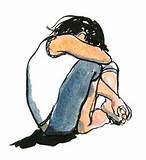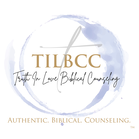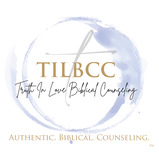If you would like to discuss abuse and oppression with one of our experienced Biblical Counselors, please email us at [email protected]
About Abuse and Oppression

Most of us have severe images that come to mind when we hear the word "abuse". And, when we think about "oppression", we usually picture an outlandish example from a movie we've seen.
Technically, abuse is any act or series of acts of commission or omission by a person of superior power or position that results in harm, potential for harm, or threat of harm to a vulnerable person.
Biblically, abuse is the selfish and intentional misuse of another, including denial of basic rights and needs. God's original design is that we would be in safe, loving, nurturing, caring relationships.
When that does not happen and, instead, one person is domineering, hurtful, unloving, uncaring (or worse), or does not provide for someone entrusted to their care, at base, their behavior is abusive/oppressive. It crosses over into abuse when their attitude and/or actions dramatically and negatively impact the health or well-being of another. Abuse is about more than treatment: it is also about effect.
Some think this is an over-statement, but we do not believe that is the case. We have ministered to several thousand survivors over the years and the effects are undeniable.
While there are only a few occasions when the word "abuse" is used in the Scriptures, there is another word (and its variants) used 84 times that describes what we consider abuse today. That word is "oppression".
As far as God is concerned, it is never okay for one person to misuse or abuse another. Period. The frequency with which abuse is minimized and reclassified as something else is pernicious and revictmizes the abused.
Statistically, when a pastor stands in the pulpit each week, out of every 100 people in front of him, only 12 to 14 of those people are not either survivors of abuse, current victims of abuse, or first-hand witnesses to abuse in their own homes. That translates to between 86% and 88% of the people going to church (or synagogue) each week have been personally impacted by abuse and/or neglect.
Abuse is usually categorized in six main ways:
1. Physical Abuse
2. Sexual Abuse/Exploitation
3. Verbal/Emotional Abuse
4. Spiritual Abuse
5. Neglect/Abandonment
6. Narcissistic Abuse
We add a seventh
7. Domestic Oppression
There are many permutations of these categories, and they will often overlap in a person’s life. All abuse is harmful; all abuse is evil..and it is NEVER okay with God!
The dynamics of abuse within families and in individual lives are pernicious. Abuse removes natural boundaries between persons, denies basic needs for safety and security, creates confusion and anxiety, and generally belies God’s created order and plan.
To the Body of Christ (especially those called to pastoral and Biblical counseling) falls the responsibility of guiding the survivor through the morass of trauma, lies, and resulting behaviors that have brought further harm to their life.
A solid grasp of God’s original design, His view on abuse, and His healing truth are absolutely necessary if the healing experience is to be successful. It is more than a matter of bringing comfort—it is a matter of teaching the survivor to know and walk in the truth.
Survivors establish and maintain a variety of defense mechanisms and protective measures in an attempt to avoid the pain of the past and shield themselves from further hurt. The greatest problem with this is that they very often are seeing current people and relationships through the lens of the past not in the current time-frame.
Breaking free and healing from the damage done to our heart and soul because of abuse is rewarding, of course. It is also a difficult and somewhat painful task that usually requires a fellow traveler to walk with us.
Truth in Love Biblical Counseling counselors have all been trained to effectively walk with survivors of abuse, neglect, domestic oppression and violence, and sexual assault through the healing process. Some are survivors themselves who have been on their own healing journey for a long time.
For more information or if you would like to schedule an appointment to speak with someone, please contact us by telephone (530-436-5441), or via email ([email protected]). We would be delighted to speak with you and help you find the healing God wants you to experience.
Also, if you would like to have Pastor Lamb speak to your group, you may contact him using the same contact information.
Technically, abuse is any act or series of acts of commission or omission by a person of superior power or position that results in harm, potential for harm, or threat of harm to a vulnerable person.
Biblically, abuse is the selfish and intentional misuse of another, including denial of basic rights and needs. God's original design is that we would be in safe, loving, nurturing, caring relationships.
When that does not happen and, instead, one person is domineering, hurtful, unloving, uncaring (or worse), or does not provide for someone entrusted to their care, at base, their behavior is abusive/oppressive. It crosses over into abuse when their attitude and/or actions dramatically and negatively impact the health or well-being of another. Abuse is about more than treatment: it is also about effect.
Some think this is an over-statement, but we do not believe that is the case. We have ministered to several thousand survivors over the years and the effects are undeniable.
While there are only a few occasions when the word "abuse" is used in the Scriptures, there is another word (and its variants) used 84 times that describes what we consider abuse today. That word is "oppression".
As far as God is concerned, it is never okay for one person to misuse or abuse another. Period. The frequency with which abuse is minimized and reclassified as something else is pernicious and revictmizes the abused.
Statistically, when a pastor stands in the pulpit each week, out of every 100 people in front of him, only 12 to 14 of those people are not either survivors of abuse, current victims of abuse, or first-hand witnesses to abuse in their own homes. That translates to between 86% and 88% of the people going to church (or synagogue) each week have been personally impacted by abuse and/or neglect.
Abuse is usually categorized in six main ways:
1. Physical Abuse
2. Sexual Abuse/Exploitation
3. Verbal/Emotional Abuse
4. Spiritual Abuse
5. Neglect/Abandonment
6. Narcissistic Abuse
We add a seventh
7. Domestic Oppression
There are many permutations of these categories, and they will often overlap in a person’s life. All abuse is harmful; all abuse is evil..and it is NEVER okay with God!
The dynamics of abuse within families and in individual lives are pernicious. Abuse removes natural boundaries between persons, denies basic needs for safety and security, creates confusion and anxiety, and generally belies God’s created order and plan.
To the Body of Christ (especially those called to pastoral and Biblical counseling) falls the responsibility of guiding the survivor through the morass of trauma, lies, and resulting behaviors that have brought further harm to their life.
A solid grasp of God’s original design, His view on abuse, and His healing truth are absolutely necessary if the healing experience is to be successful. It is more than a matter of bringing comfort—it is a matter of teaching the survivor to know and walk in the truth.
Survivors establish and maintain a variety of defense mechanisms and protective measures in an attempt to avoid the pain of the past and shield themselves from further hurt. The greatest problem with this is that they very often are seeing current people and relationships through the lens of the past not in the current time-frame.
Breaking free and healing from the damage done to our heart and soul because of abuse is rewarding, of course. It is also a difficult and somewhat painful task that usually requires a fellow traveler to walk with us.
Truth in Love Biblical Counseling counselors have all been trained to effectively walk with survivors of abuse, neglect, domestic oppression and violence, and sexual assault through the healing process. Some are survivors themselves who have been on their own healing journey for a long time.
For more information or if you would like to schedule an appointment to speak with someone, please contact us by telephone (530-436-5441), or via email ([email protected]). We would be delighted to speak with you and help you find the healing God wants you to experience.
Also, if you would like to have Pastor Lamb speak to your group, you may contact him using the same contact information.
Statistics bear out that:
- 1 in 3 females experience physical, sexual, or other abuse in their lifetime;
- 1 in 6 males experience sexual abuse before age 16;
- 1 in 4 males experience some form of abuse other than sexual.
- A report of child abuse is made every ten seconds.
- More than five children die every day as a result of child abuse.
- Approximately 80% of children that die from abuse are under the age of 4.
- It is estimated that between 50-60% of child fatalities due to maltreatment are not recorded as such on death certificates.
- More than 90% of juvenile sexual abuse victims know their perpetrator in some way.
- Child abuse occurs at every socioeconomic level, across ethnic and cultural lines, within all religions and at all levels of education.
- About 30% of abused and neglected children will later abuse their own children, continuing the horrible cycle of abuse.
- About 80% of 21 year olds that were abused as children met criteria for at least one psychological disorder. ("Psychological Disorder" is a term the world uses to identify "a behavioral or mental health pattern that may cause suffering or a poor ability to function in life." In our Biblical Counseling ministry, we address these problems as "soul damage".)
- 14% of all men in prison in the USA were abused as children.
- 36% of all women in prison were abused as children.
- Children who experience child abuse & neglect are 59% more likely to be arrested as a juvenile, 28% more likely to be arrested as an adult, and 30% more likely to commit violent crime.
- Abused children are 25% more likely to experience teen pregnancy.
- Abused teens are more likely to engage in sexual activity, putting them at greater risk for STDs.
- One-third to two-thirds of child maltreatment cases involve substance use to some degree.
- Children whose parents abuse alcohol and other drugs are three times more likely to be abused and more than four times more likely to be neglected than children from non-abusing families.
- As many as two-thirds of the people in treatment for drug abuse reported being abused or neglected as children.
Leadership Training

One of our affiliate ministries offers training to those interested in being equipped to provide Biblical counseling to survivors of abuse utilizing the curriculum Mending the Soul.
For more information, click the picture at left.
For more information, click the picture at left.


